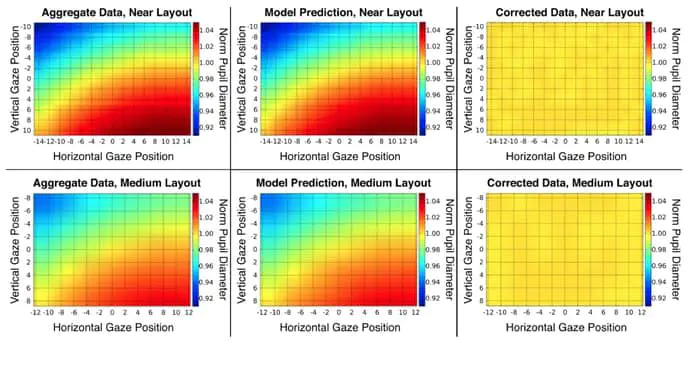Mapping and correcting the influence of gaze position on pupil size measurements

Abstract
Pupil size is correlated with a wide variety of important cognitive variables and is increasingly being used by cognitive scientists. Pupil data can be recorded inexpensively and non-invasively by many commonly used video-based eye-tracking cameras. Despite the relative ease of data collection and increasing prevalence of pupil data in the cognitive literature, researchers often underestimate the methodological challenges associated with controlling for confounds that can result in misinterpretation of their data. One serious confound that is often not properly controlled is pupil foreshortening error (PFE)—the foreshortening of the pupil image as the eye rotates away from the camera. Here we systematically map PFE using an artificial eye model and then apply a geometric model correction. Three artificial eyes with different fixed pupil sizes were used to systematically measure changes in pupil size as a function of gaze position with a desktop EyeLink 1000 tracker. A grid-based map of pupil measurements was recorded with each artificial eye across three experimental layouts of the eye-tracking camera and display. Large, systematic deviations in pupil size were observed across all nine maps. The measured PFE was corrected by a geometric model that expressed the foreshortening of the pupil area as a function of the cosine of the angle between the eye-to-camera axis and the eye-to-stimulus axis. The model reduced the root mean squared error of pupil measurements by 82.5 % when the model parameters were pre-set to the physical layout dimensions, and by 97.5 % when they were optimized to fit the empirical error surface.